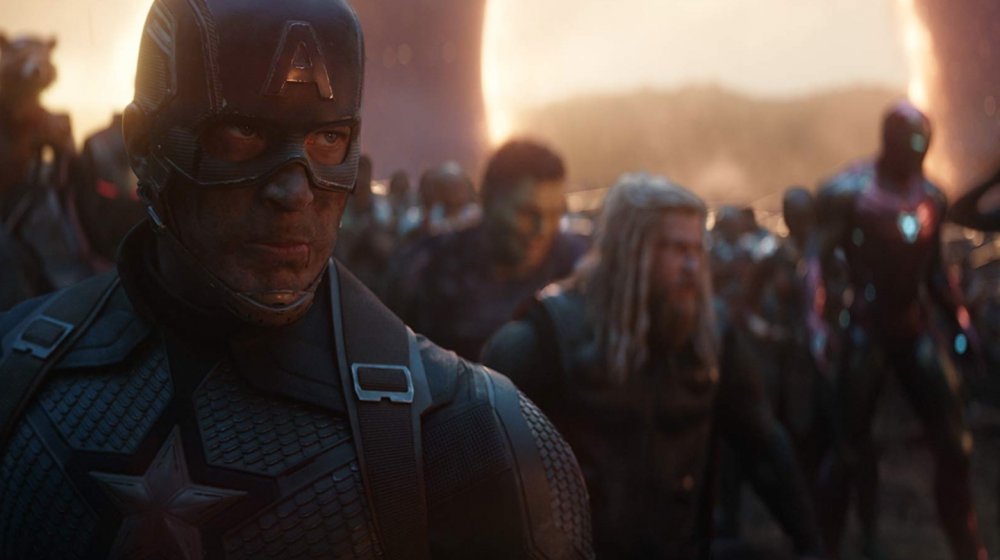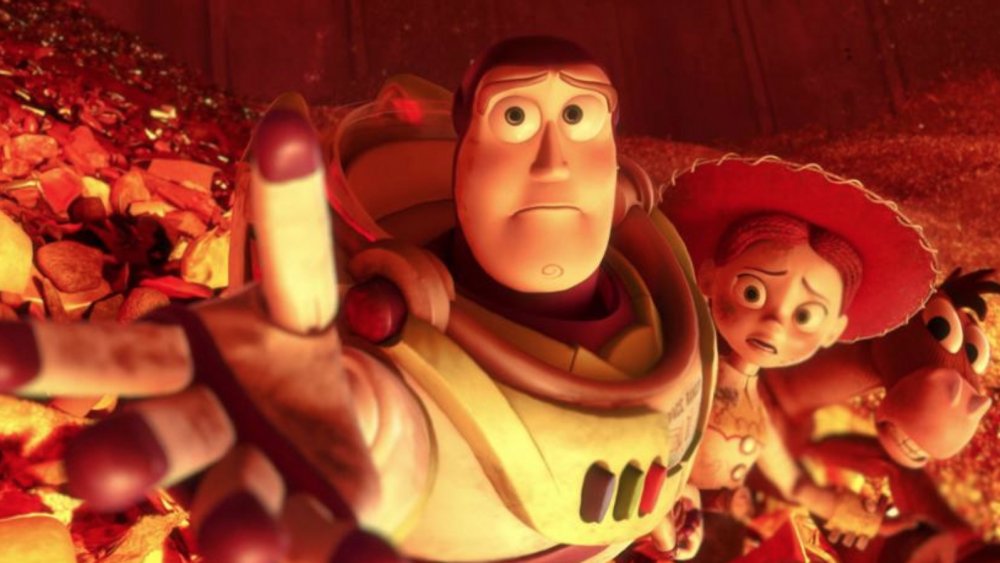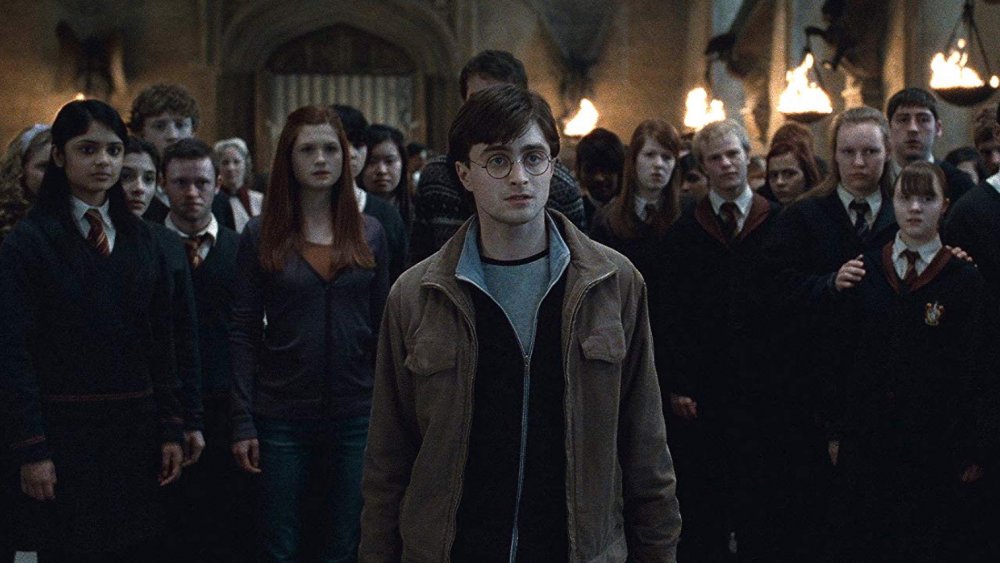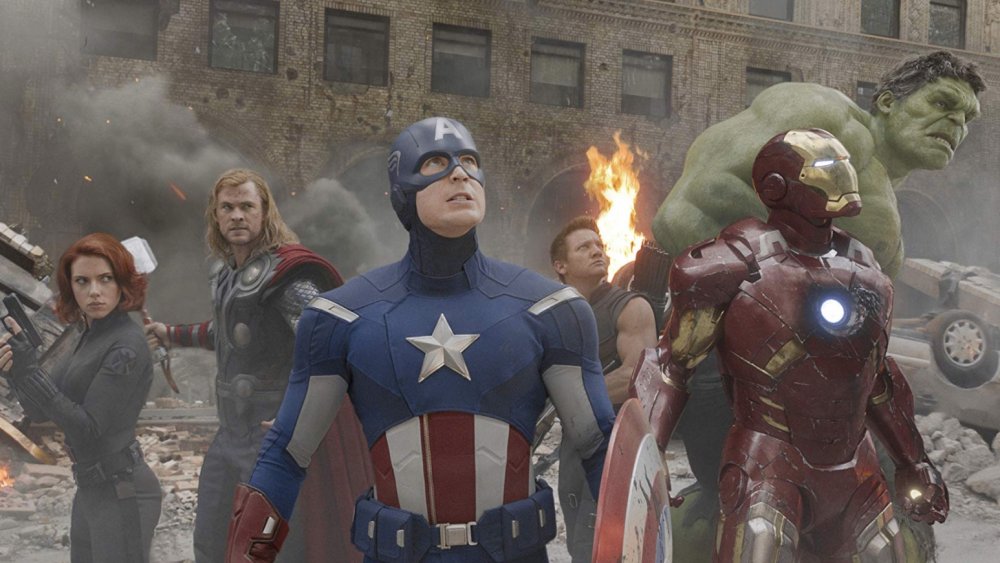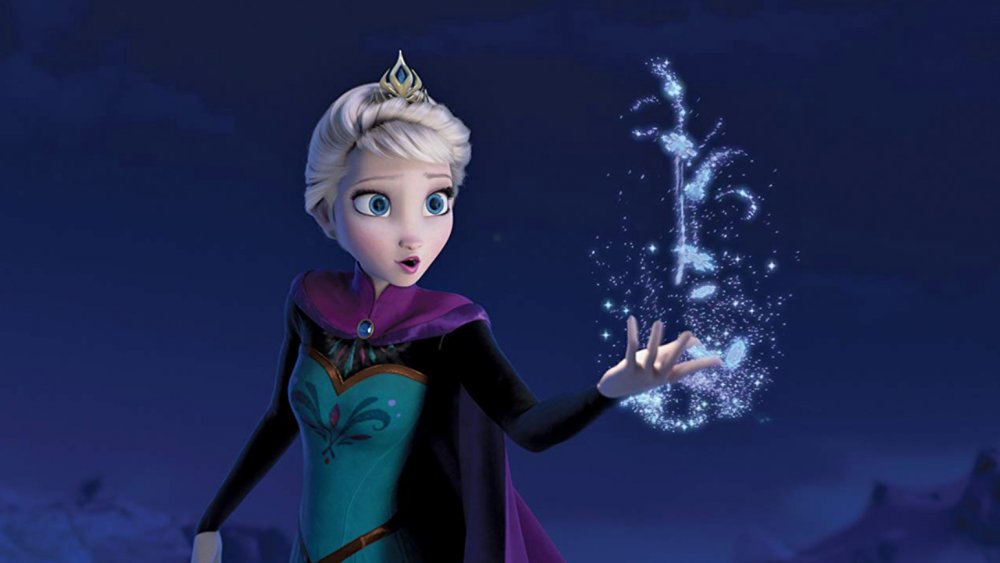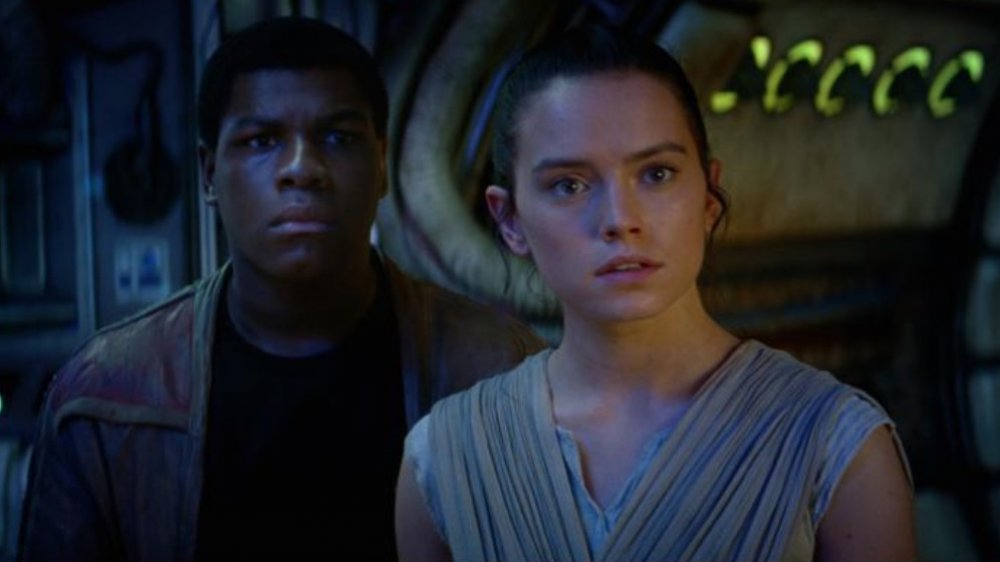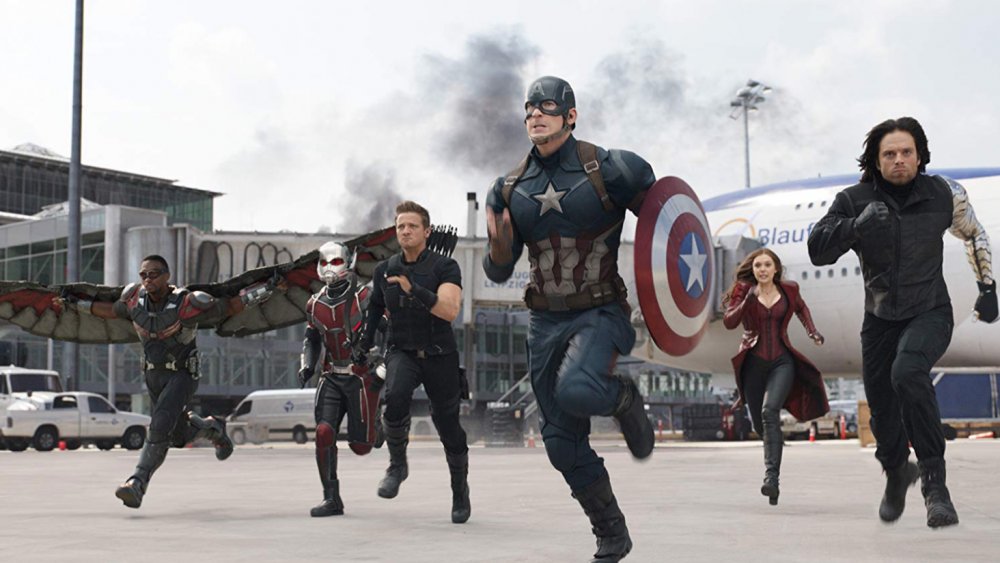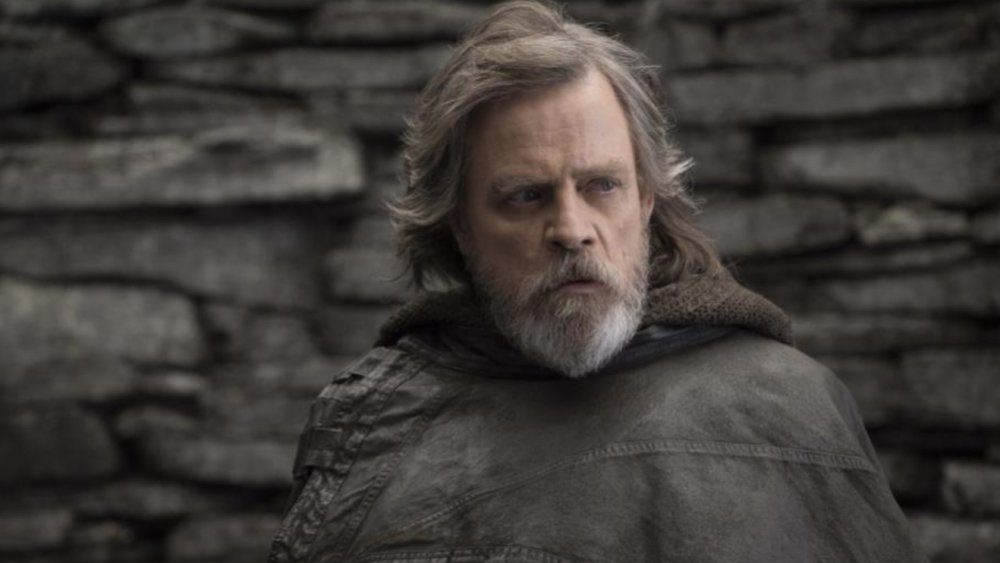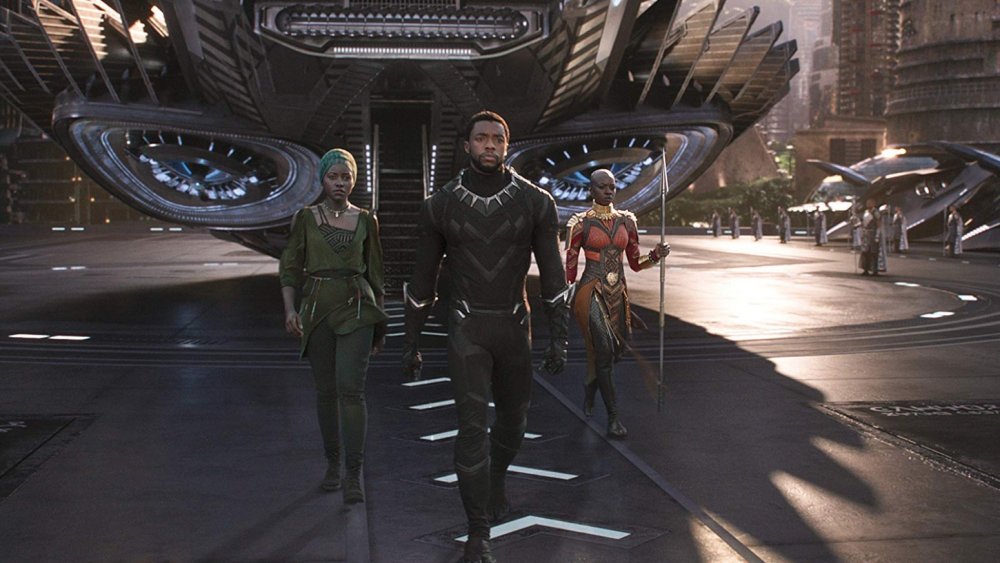The Biggest Box Office Hits Of The Decade
The past decade has been historic at the box office. James Cameron's Avatar set the stage for the record-breaking ten-year span, opening in 2009 but making most of its money in 2010, and becoming the then highest-grossing movie of all time along the way. Despite this, by the decade's end Avatar would be dethroned at both the domestic and worldwide box office. Since then, the decade has featured some of the highest highs and the lowest lows as Hollywood has struggled to reach moviegoers in a fractured entertainment landscape. With streaming services giving viewers more opportunity to watch some of the biggest and best movies from the comfort of home, major Hollywood studios have tried to keep luring moviegoers out to the multiplex by turning any existing property into a franchise.
Where does that leave the box office? That's obviously a big question, but there's no denying that the last ten years have seen a lot of big-budget franchise pictures dominating the top of the charts, leaving less room for original stories. Shocking literally nobody, Disney dominated the decade. More surprising is that many years found one movie winning domestically, with a completely different film taking the throne worldwide. Which movies were the most commercially successful of all? You may be surprised. Here are the biggest box office hits of the decade.
Pixar's first franchise hit wasn't toying around in 2010
Disney kicked off its decade of dominance with the third film in the franchise that changed animation: Toy Story 3. The original Toy Story launched the series and made Pixar a household name, earning $191 million in North America and $373 million worldwide, and becoming the biggest grosser of 1995. Toy Story 2 came out four years later, and earned even more than its predecessor, making $245 million domestically and $497 million worldwide. With results like that, a third film seemed like a no brainer. However, it would be 11 years before Pixar made another Toy Story movie.
While Pixar made billions in the interim, animation fans still wanted to see the "conclusion" to the OG Pixar series. They got their wish when Toy Story 3 opened in 2010. It was worth the wait, as the film earned an amazing 98% Tomatometer score, with the box office to match. With $415 domestically and more than $1 billion worldwide, Toy Story 3 was the highest-grossing movie released in 2010. However, it was not the movie to earn the most money in 2010. That was Avatar, which was released in late 2009, but made $466 million domestically in the year that followed. While Toy Story 3 seemed like the perfect conclusion to the trilogy, you just can't keep a billion-dollar franchise down. Toy Story 4 was released in 2019, and earned $434 million domestically and $1.07 billion worldwide.
The boy wizard made $1.3 billion in 2011
Harry Potter is big business at the box office. The franchise, consisting of the seven Harry Potter films and the two Fantastic Beast prequels, has made more than $2.7 billion domestically and nearly $9.2 billion worldwide. The high point in the franchise came at the very end of its first run (but before the prequels) with Harry Potter and The Deathly Hallows Part II in 2011. Deathly Hallows Part II was pitched as the epic conclusion to the eight-film saga that had begun ten years before with Harry Potter & The Sorcerer's Stone. Sorcerer's Stone was the highest-grossing movie of 2001, with $317 million domestically and nearly $1 billion worldwide.
Surprisingly, the Harry Potter series wouldn't hit numbers like that again until the final installment, Deathly Hallows Part II. Anticipation was at a fever pitch, so much so that Deathly Hallows Part II set a then-opening weekend record of $169 million, on its way to a total domestic gross of $381 million and a worldwide gross of $1.3 billion, making it the highest-grossing movie of 2011. It was a good year to be the boy wizard, but his reign would be short lived, as the magical world of Harry Potter could not beat the might of Marvel.
The Avengers assembled a record-breaking box office run in 2012
It's hard to believe now, but Marvel's grand experiment of a shared cinematic universe once had an uncertain future at the box office. Iron Man exceeded all expectations when it opened in 2008, taking what had been a B-level character in comics, and putting him in a movie that earned $318 million domestically and $585 million worldwide. However, the other films featuring Tony Stark's future teammates weren't quite as successful. The Incredible Hulk bombed in 2008 with $134 million domestic and $263 million worldwide on a $150 million budget. While Thor ($181 million domestic, $449 million worldwide) and Captain America: The First Avenger ($176 million domestic, $370 million worldwide) fared better in 2011, none of these films screamed "biggest blockbuster franchise" ever. If anything, The Avengers felt like it might be nothing more "Iron Man & Friends." Movie history had other plans.
The Avengers set a then-opening weekend record of $207 million, becoming the first movie to open with more than $200 million, on its way to $623 million domestic and $1.5 billion worldwide total. The Avengers was the biggest hit of 2012, and it wasn't even close (in fairness, The Dark Knight Rises and Skyfall only had one hero each, compared to The Avengers' half-dozen). As amazing as these numbers were, The Avengers greatest achievement was giving the Marvel Cinematic Universe the kick in the tights it needed to become a $22.5 billion (and counting) powerhouse.
Hunger Games catches fire domestically, but gets Frozen out worldwide
Disney dominated the decade, but in 2013 the biggest hit at the domestic box office came from a much smaller film studio: Lionsgate. Lionsgate had scored a major coup when it got the rights to Suzanne Collins' wildly popular novel series The Hunger Games. The first film launched the franchise in a big way, earning $152 million in its opening weekend, on its way to $408 million domestic and $694 million worldwide. The sequel, The Hunger Games: Catching Fire, opened with $158 million, and earned $424 million domestically and $865 million worldwide, becoming the highest-grossing film of 2013... but only domestically.
Globally, The Hunger Games: Catching Fire made the top five, but the big winner worldwide was the surprise Disney animated smash hit, Frozen. Frozen opened in limited release in late 2013 with $243,000 and legged its way to $400 million domestic and an incredible $1.27 billion worldwide. While nobody should ever count out Disney at the box office, Frozen becoming 2013's biggest hit worldwide was surprising, given it wasn't a sequel, reboot, or remake, and wasn't based on a popular pre-existing property (Hans Christian Andersen's The Snow Queen ain't The Hunger Games). The year 2013 proved that the global box office was more important than ever, as the biggest domestic hit was not the biggest hit worldwide — a trend that would happen again in the years ahead.
Sniper wins America, but can't beat the bots worldwide
For decades, our movie-going diets have been fattened by sequels, reboots, and remakes. Given this moviegoing landscape, American Sniper was a milestone in 2014. It was the first movie since Avatar that wasn't based on a pre-existing property to top the domestic box office (unless you count the fact it was based on a true story), and the only movie this century to do so that wasn't a big-budget, CG-infused blockbuster. This achievement is even more impressive because the movie was also rated R.
That said, American Sniper's status as "2014's biggest movie" is a bit of a misnomer, as it made most of its money in 2015. It first opened in limited release in December 2014, making a little more than $633,000 in just four theaters. It opened wide in January 2015 with an incredible $92 million, and continued to leg it out to a $350 million domestic haul. While American Sniper was the #1 hit domestically, its total worldwide take (a still very impressive $547 million), didn't even secure it a spot in the top ten. The year's biggest worldwide hit was, not surprisingly, a franchise picture — Transformers: Age of Extinction. The fourth film in the Transformers series made a so-so (for Transformers) $245 million domestically, but was big business overseas, with a total worldwide take of just a little more than $1.1 billion. American Sniper was an historic achievement stateside, but worldwide Chris Kyle couldn't top the bots.
The Force was strong with The Force Awakens in 2015
Disney purchased LucasFilm in 2012 for $4 billion, and it wasn't so they could re-release the Star Wars Holiday Special on Blu-ray. The Mouse House was on a mission to bring back the beloved franchise from a galaxy far, far away. Star Wars: Episode VII was one of the most anticipated films of the century. Fans had literally waited decades to see what happened to Han, Luke, Leia, and the gang after the Empire had fallen in 1983's Return of the Jedi. This would be the first Star Wars film in 10 years, the first that wasn't a prequel in 32 years, and the first ever that wasn't from series creator George Lucas.
While the original Star Wars helped invent the summer movie season, this would be the first film in the franchise to open during the holiday season. This turned out to be a brilliant move. Star Wars: The Force Awakens opened like a summer blockbuster with a then-record $247 million, but had the legs of a holiday release. By the end of its run, Star Wars: The Force Awakens earned $936 million stateside to become not only the #1 domestic release of 2015, but the biggest domestic hit of all time. The Force was strong overseas, too, as the film earned just over $2 billion globally, making it the biggest hit worldwide of 2015.
The world loves Civil War, but the U.S. goes Rogue
Disney dominated 2016 with the biggest box office hit both domestically and worldwide, though each came from a different movie. That's just what happens when you spend billions to acquire both the Star Wars series and the Marvel Cinematic Universe. Captain America: Civil War kicked things off, opening in the spring of 2016 and pitting Cap against Iron Man. Adding the anchor of the franchise, Robert Downey Jr.'s Tony Stark, proved to be a big boon to the film's box office, as Captain America: Civil War opened to $179 million, nearly twice as much as its predecessor, Captain America: The Winter Soldier. While the film didn't have long legs at the domestic box office, it still managed a massive $408 million domestic gross, and more importantly, made $1.15 billion total, to become the biggest box office hit worldwide of 2016.
After Star Wars: The Force Awakens' historic run during the 2015 holiday season, Disney wisely released Rogue One: A Star Wars Story in December 2016. Rogue One was the first Star Wars movie that wasn't part of the main Skywalker Saga, but moviegoers were ravenous for the franchise. Rogue One opened to $155 million, on its way to $532 million domestic take, and just over $1 billion worldwide, making it the biggest domestic hit of 2016 and #2 worldwide. The battle for box office supremacy was no longer a fight between rival studios; it was a fight between rival Disney properties.
The Last Jedi was first at the box office in 2017
Before the year even began, it was a given what the biggest box office hit of 2017 would be — Star Wars: The Last Jedi. It was just a matter of how much money Rian Johnson's followup to J.J. Abrams' well-received Star Wars: The Force Awakens would make. That said, 2017 featured strong performances from several other films. Disney's live-action Beauty and the Beast remake opened in the spring, earning $504 million domestically and $1.26 billion worldwide. The Fate of the Furious opened in the summer, earning a respectable $226 million domestically, but making an insane $1.2 billion worldwide, becoming the year's biggest international hit by a pretty sizable margin. But you can't stop destiny, and Star Wars was destined to dominate.
The Last Jedi opened during the 2017 holiday season with $220 million — less than its predecessor, but not surprising given it lacked that film's decades of pent-up demand. However, thanks to a divided response from moviegoers, and a stronger-than-expected performance from Jumanji: Welcome to the Jungle, The Last Jedi didn't have The Force Awakens' legs. The film made $620 million domestically and $1.3 billion worldwide, making it the biggest hit of the year. However, its steep decline from The Force Awakens showed there was a disturbance in the Force, and Solo: A Star Wars Story became the first film in the franchise to bomb when it opened just a few months later.
Marvel made all the money in 2018
There was no new movie from Star Wars' Skywalker saga (just the prequel/spin-off film Solo: A Star Wars Story, which shockingly tanked), so it was a given that a Marvel movie would top the box office in 2018. However, the Marvel movie that won the day domestically was a surprise. Black Panther opened in February, a season not typically known for blockbusters, on a wave of awesome reviews and positive sentiment to score a mammoth $202 million opening weekend. Black Panther wasn't a one-weekend wonder though, as it continued to leg it out, earning a historic $700 million domestically and $1.3 billion worldwide.
Black Panther was the biggest domestic hit of 2018 and is one of only a handful of movies ever to earn more than $700 million at the domestic box office. While that movie was an historic surprise, the biggest worldwide earner was a given. Avengers: Infinity War was the beginning of the "end" for the most successful franchise of all time, bringing together characters from the entire MCU. With anticipation at a fever pitch, Avengers: Infinity War set the then-opening weekend record with $257 million. However, Infinity War didn't have Black Panther's legs at the domestic box office, though it still earned a mammoth $678 million stateside. Nevertheless, with a global take of just over $2 billion, it was the biggest hit of the year by far.
Avengers: Endgame snaps every box office record out of existence
Avengers: Infinity War shocked the world. Not with its $2 billion worldwide gross (which was pretty much a given), but with its ending — the villain Thanos actually won! Sure, everyone knew there was going to be a "Part II," but it was still shocking that a major blockbuster film (from Disney no less) had the Infinity Stones to end with the villain murdering half of the universe. Talk about a cliffhanger. Moviegoers around the world had to know how our heroes would save the day. Disney was smartly coy with their marketing. We didn't even know the film's title until a few months before its release, and the trailers told us practically nothing about the story, only that our remaining heroes would do "whatever it takes" to stop Thanos.
The mysterious marketing paid off. While it was set in stone that Avengers: Endgame would break records, not even the most optimistic observers could predict that Avengers: Endgame would obliterate the opening weekend record set by its predecessor, earning $357 million domestically, and more than $1.2 billion worldwide. A midsummer expansion propelled Endgame's final gross to $858 million domestically and $2.79 billion worldwide. Its combined total makes it not only the biggest hit of 2019 stateside and worldwide, but the highest-grossing film of all time.
